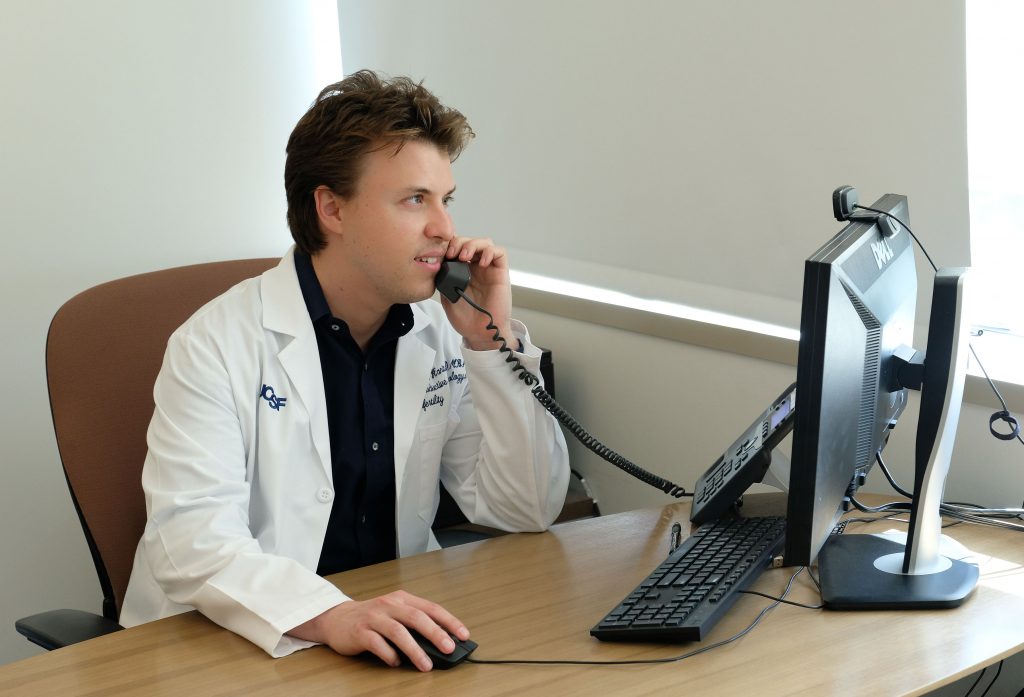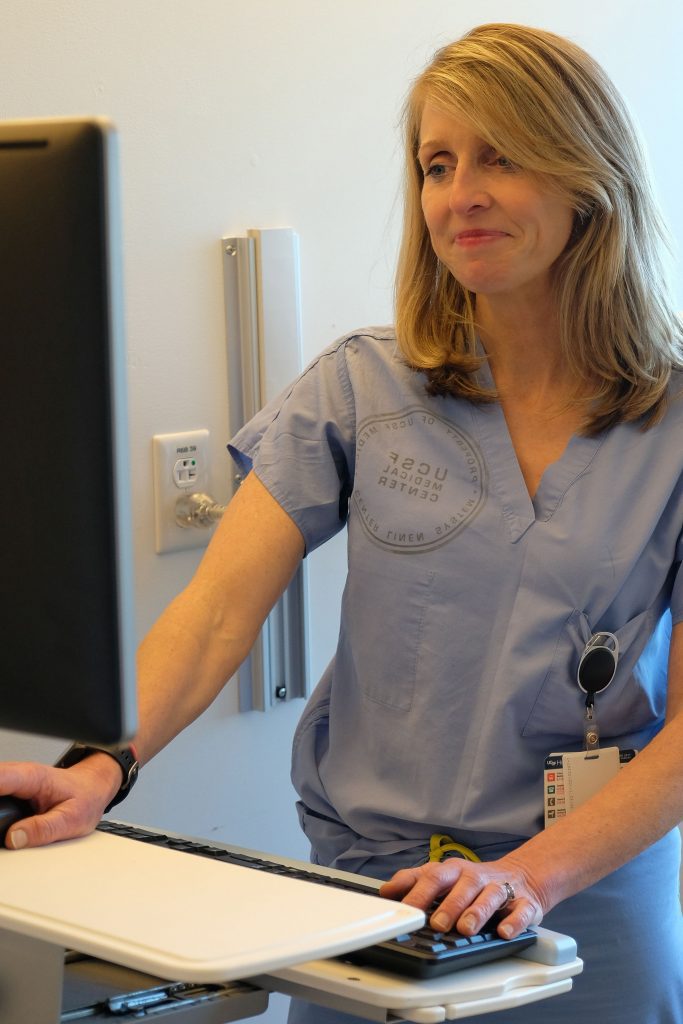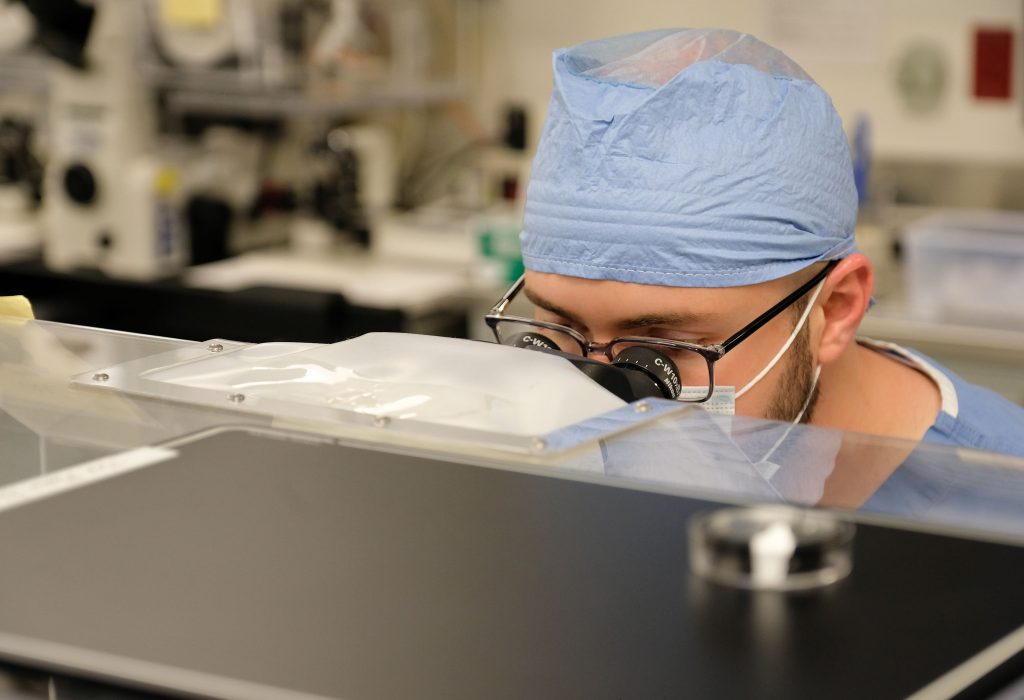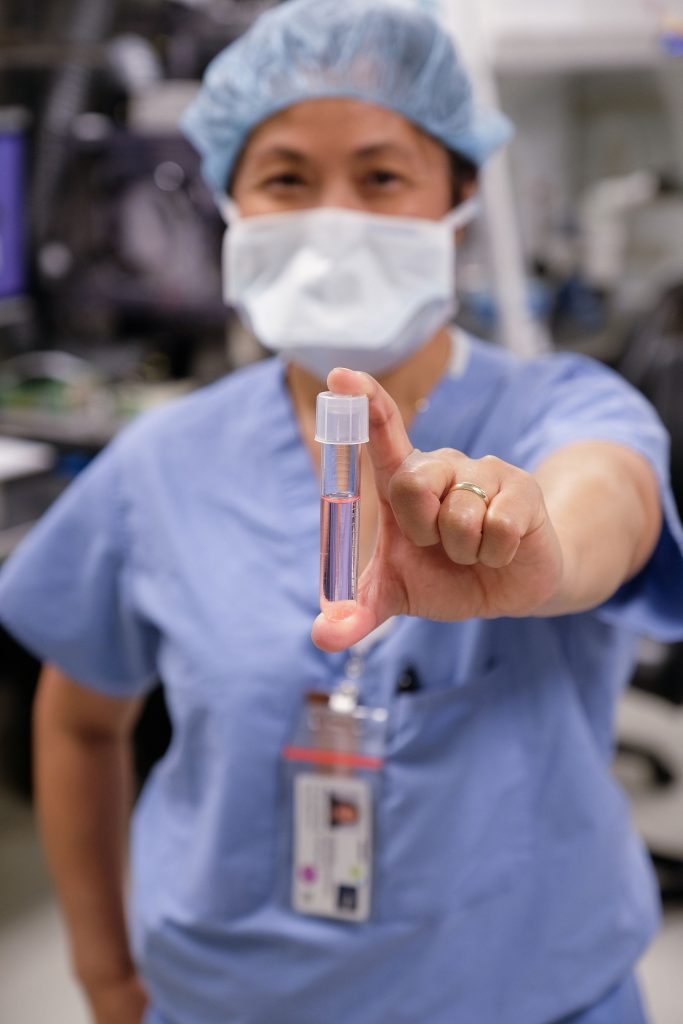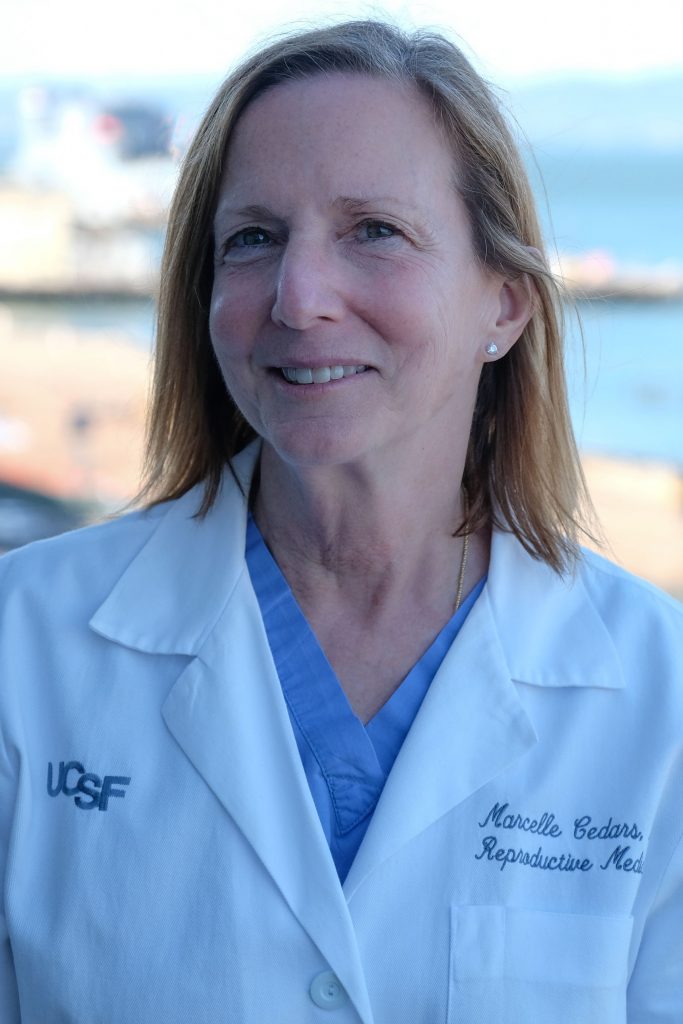UCSF’S RAPID RESPONSE TO COVID-19
As an academic medical center dedicated to public health, specializing in the care of patients with the most complex diseases, and home to some of the nation’s top infectious disease experts, UCSF is at the forefront of efforts to mitigate and eradicate the COVID-19 pandemic. Likewise, the UCSF Department of Obstetrics, Gynecology, and Reproductive Sciences—a recognized leader in its field and currently ranked No. 1 nationwide in women’s health research funding from the National Institutes of Health—responded early and aggressively to the urgent need to understand the impacts of COVID-19 on pregnant women and their babies.
EARLY PREGNANCY: A CRUCIAL PERIOD FOR MOTHER AND BABY
During pregnancy, changes in the immune system and lungs may make women more vulnerable to severe illness or even death from respiratory viruses. Additionally, viral infections in the mother can lead to miscarriage, birth defects, or brain development problems in the fetus.
The first 10 weeks of pregnancy are the most crucial. This is when the fetus is highly vulnerable because its organ systems are forming, and the placenta—the key connection between mom and baby—develops. The lifelong health trajectory of a baby can be irreparably affected during this time, yet no data exists about the impact of COVID-19 infection during this critical period. Given the potential dangers to mothers and their unborn babies, we need answers now to support and counsel women who have become pregnant or are planning to get pregnant during this pandemic.
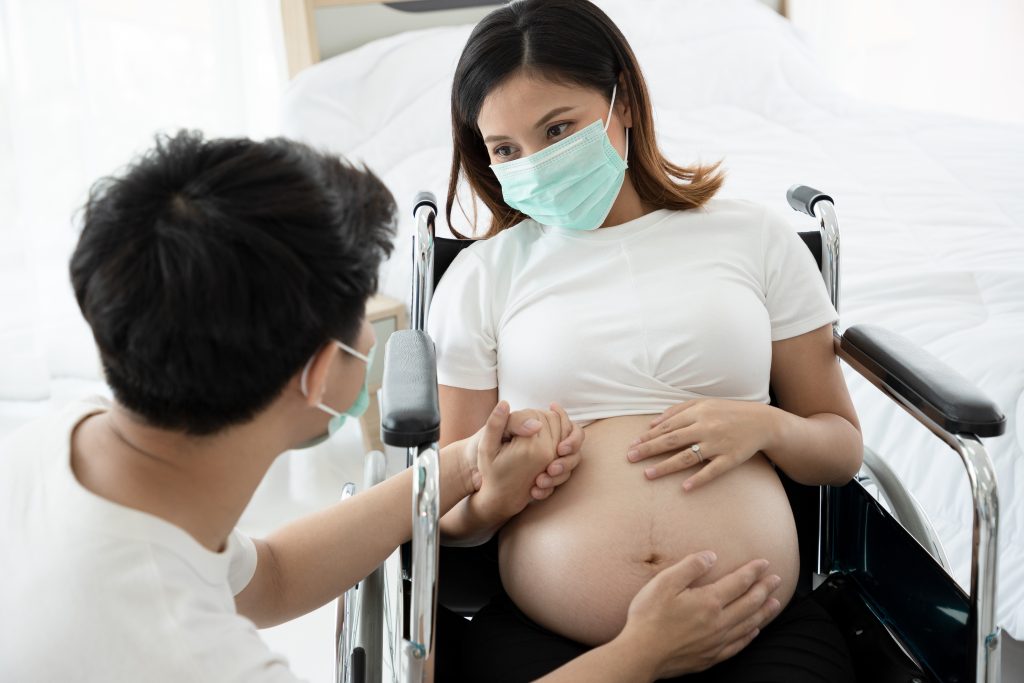
ASPIRE: CHARTING A PATH TO UNCOVER COVID-19’S IMPACTS
Solid epidemiological data about the effects of previous viral epidemics (e.g., SARS and H1N1 influenza) on pregnancy is limited due to the lack of high-quality studies that follow women from the earliest stages of pregnancy. Historically, the first trimester has been inaccessible to medical research, because most women don’t have their initial obstetric appointment until almost the end of the first trimester, several weeks after this crucial period of fetal development has ended.
To adapt to this challenge, UCSF partnered with the Society for Assisted Reproductive Technology (SART), the only nationwide resource that tracks pregnancies from the moment of conception. The SART network includes nearly 400 clinics across the country that contribute data on approximately 100,000 births annually. This powerful collaboration uniquely positioned us to launch this breakthrough study that will provide the first data about COVID-19 infections during the first trimester. It will allow us to chart the impact of the virus on the health of expectant mothers and their developing babies. In just one month since our launch, ASPIRE has gained incredible momentum, with 79 clinics signed on and more than 350 participants enrolled in 46 states.

Dr. Eduardo Hariton 
Dr. Heather Huddleston 
Lab tech researching 
Lab tech with samples 
Dr. Marcelle Cedars
JOIN US AS WE ASPIRE FOR ANSWERS
Given the urgency around this work, philanthropy is more important than ever. The federal government has distributed nearly $2 billion in COVID-19 funding, but not a penny has been allocated to study COVID-19 in early pregnancy and the impact on childhood development. With our research model, SART partnership, and the UCSF team of multidisciplinary experts—including reproductive endocrinologists, high-risk pregnancy specialists, placental immunologists, data scientists, epidemiologists, and pediatricians—we invite your investment in ASPIRE today.
Together, we will recruit and follow 10,000 patients to help answer crucial questions that will inform COVID-19-related pregnancy care and public policy, including:
- Is it safe to get pregnant during the pandemic?
- Are pregnant women at higher risk for severe illness if they get COVID-19?
- Are women who are exposed to COVID-19 during the first trimester at higher risk of miscarriage or preterm delivery?
- Are babies who are exposed during the first trimester at higher risk of congenital malformations or adverse neurologic development?
- Even if a woman doesn’t have symptoms, can the virus affect her pregnancy?
- Are certain pregnant women at higher risk of dangerous outcomes?
The ASPIRE study has crucial implications for the health of pregnant women, their babies, public health, and policy. We invite you to partner with us to provide urgent, breakthrough data that will support the health and safety of our future mothers and babies in the U.S. and around the world.
Join our crowdfunding effort at givingtogether.ucsf.edu/ASPIRE. We also seek major investments to raise an additional $2.5 million for this 2-year study. Please contact Director of Development Dawn Mitchell at 415-502-3417 or dawn.mitchell@ucsf.edu for more information.

